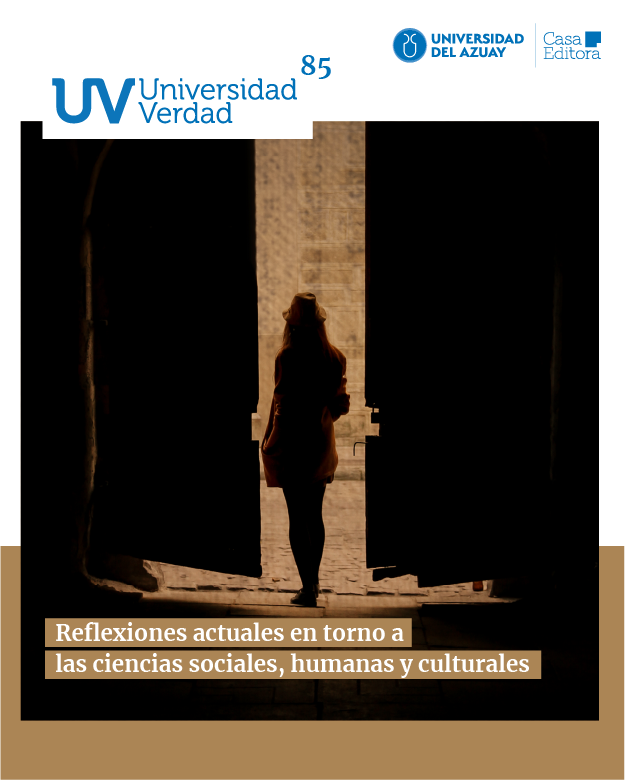EL LADRÓN DE LEVITA, DE JORGE VELASCO MACKENZIE, UN APRENDIZ DEL MAL EN CONTEXTOS VIOLENTOS
DOI:
https://doi.org/10.33324/uv.vi85.872Palabras clave:
El ladrón de levita , Jorge Velasco Mackenzie, narrativa ecuatoriana, ética del mal, criminal, bestialismoResumen
La presente investigación cualitativa explora y analiza la novela El ladrón de levita, de Jorge Velasco Mackenzie, desde una perspectiva humanística y flosófca, asistida por un rastreo documental, teórico y crítico, que sustenta la labor hermenéutica planteada. A partir de ello, formula la construcción del sujeto infractor y su elección por la ética del mal, debido a condiciones biográfcas y a su exposición a
prácticas reñidas con el bien, es decir, a su inmersión irreversible dentro de entornos violentos. Este proceso de construcción es detallado usando la misma expresión del personaje, “trinidad del mal” que, a manera de un tríptico, aborda los siguientes paneles
temáticos: la elección por el mal, la materialización del mal en otra trinidad y la delimitación de los bordes entre el mal y lo ani-mal. El bestialismo, como tema complementario de esta novela plantea el desafío de explorar más detenidamente la tradición narrativa del Ecuador, con el propósito de mirar el comportamiento de este motivo y sus formas de representación y signifcados.
Palabras clave: El ladrón de levita, Jorge Velasco Mackenzie, narrativa ecuatoriana, ética del mal, criminal, bestialismo.
Abstract
This qualitative research explores and analyzes the novel El ladrón de levita by Jorge Velasco Mackenzie from a humanistic and philosophical perspective, supported by documentary, theoretical, and critical research that supports the proposed hermeneutic work
From this, he formulates the construction of the ofending subject and its choice of the ethics of evil due to biographical conditions and its exposure to practices contrary to the good, that is, its irreversible immersion in violent environments. This process of construction
is through the same carácter expression, “trinity of evil,” which, as a triptych, addresses the following thematic panels: the choice of evil, the materialization of evil in another trinity, and the delimitation of the boundaries between evil and the ani-evil. Bestialism,
as a complementary theme of this novel, poses the challenge of exploring more closely the Ecuadorian narrative tradition in order to study the behavior of this motif and its forms of representation and meanings.
Keywords: El ladrón de levita, Jorge Velasco Mackenzie, ecuadorian narrative, ethics of evil, criminal, bestiality





